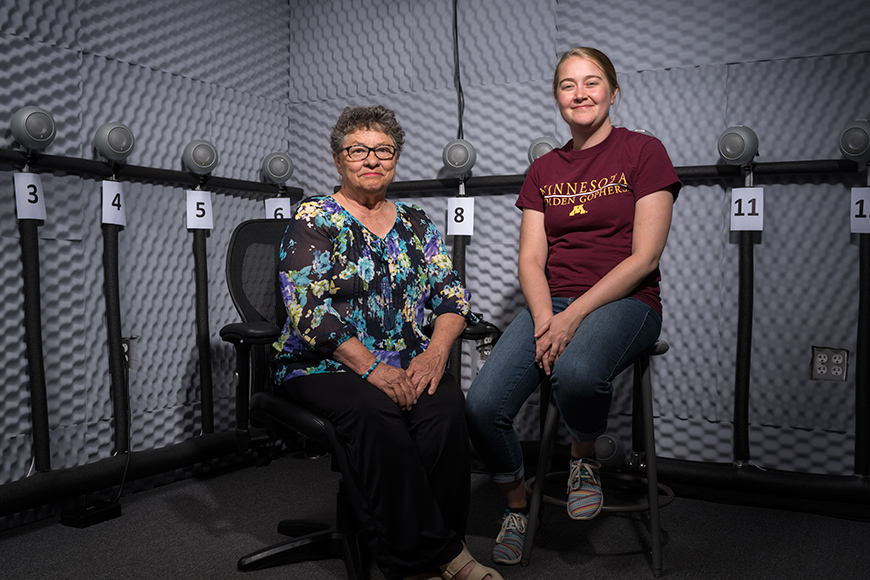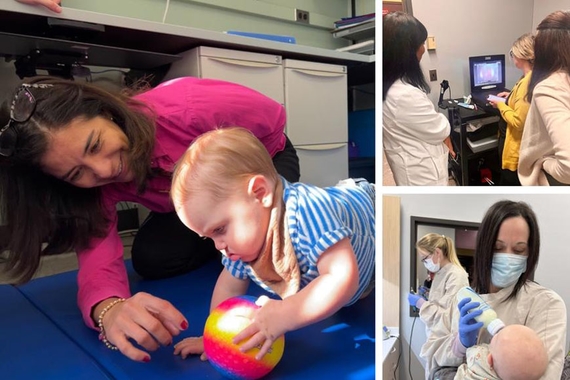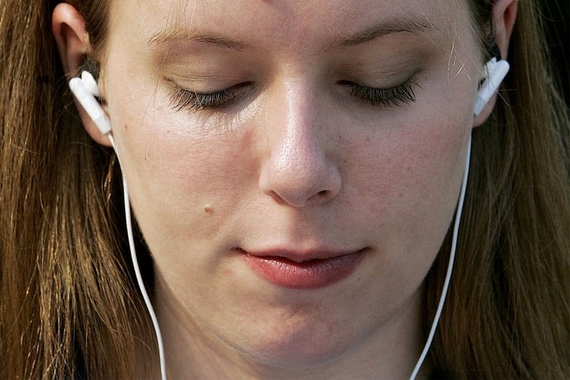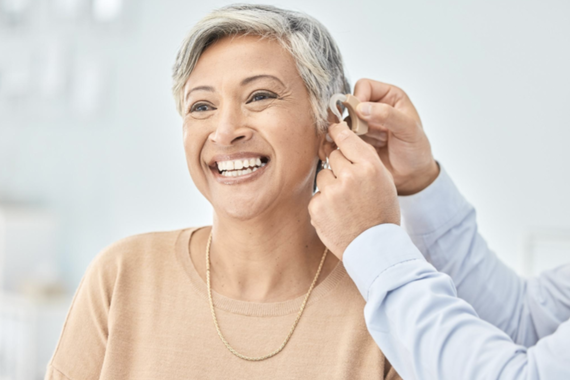On Purpose: Portrait of CATSS

Sensory loss—or loss of vision, hearing, and balance—increases with age and can be related to a decline in quality of life. The Census Bureau predicts that by 2050, the number of people 65 years and older will approach 20 percent of the U.S. population. Sensory loss of all types is prevalent among aging people, accounting for a sharp decline in social engagement and a reduction in socioeconomic potential.
Social support, social networks, and participation in social activities have all been shown to promote healthy aging and mitigate some of the effects of general decline. However, individuals with sensory loss experience decreased social spheres and reduced life experiences. Both Erin and Donna experienced changes in their social networks as a result of profound hearing loss, and they’re working with us to find solutions for others like them.
These large and important issues that require the multidisciplinary and multisensory approach fuel the mission of the Center for Applied and Translational Sensory Science (CATSS). In CATSS, researchers are studying solutions for sensory loss. Emerging technology is significantly improving the lives of those with sensory loss, and access to technology is changing with the rapid growth of smartphones and wearable devices.
CATSS scientists, clinicians, and engineers combine fundamental and translational science to develop and test the next generation of technology for vision and hearing loss. Together with experts in aging, we conduct translational research using state-of-the art customized technology, rehabilitation, accessibility, and accommodations. Conversations with the community are key, and CATSS researchers actively listen to elderly persons and others with sensory loss to determine the priorities for research and development that arise from within the community of users themselves.
Erin, a student researcher, and Donna, a study participant, both have personal experience with profound hearing loss. Their stories reveal the complex social and emotional outcomes of sensory loss.


